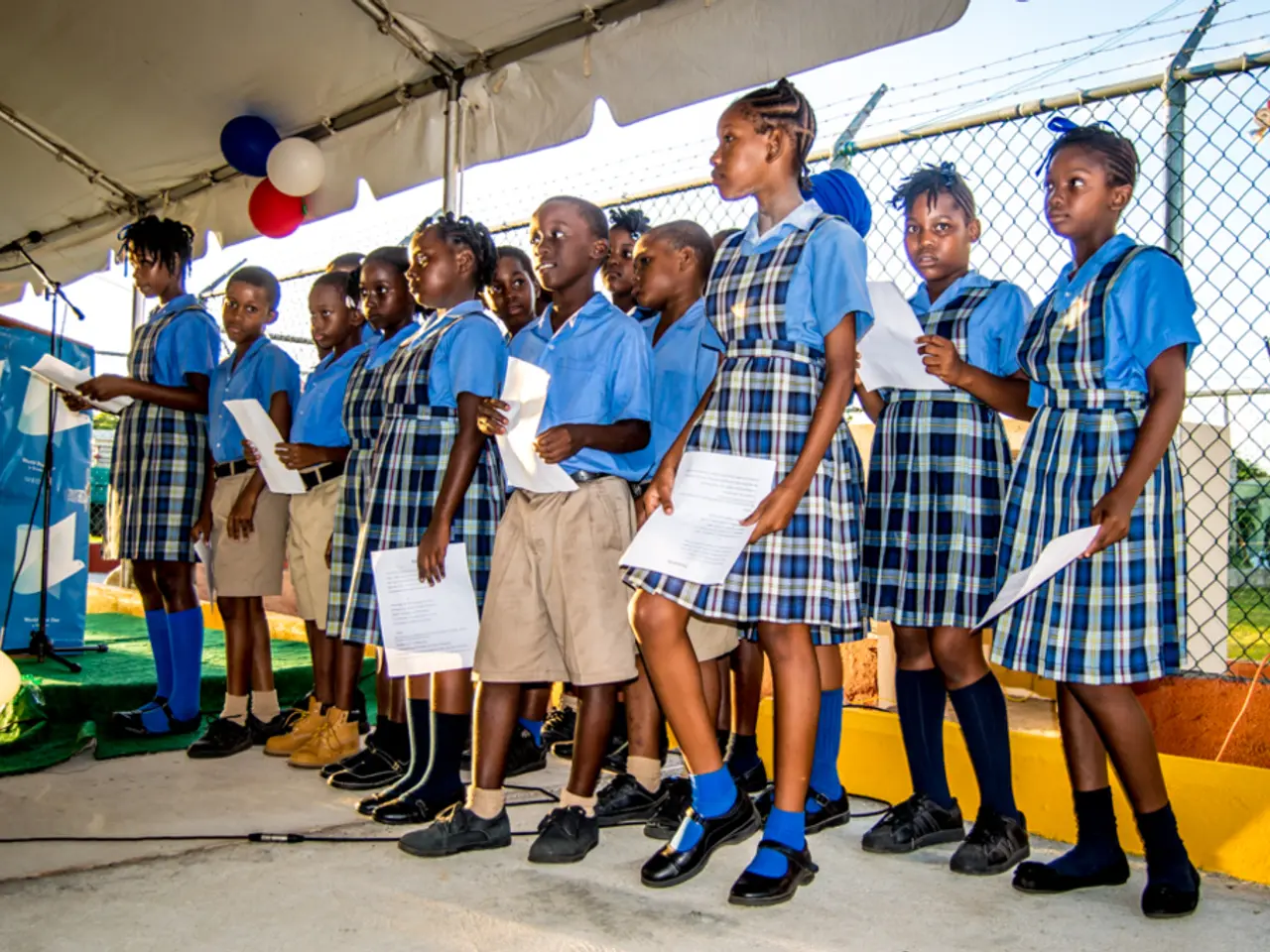Government Bestows 10 Laptops onto Mlomwe Primary School, However, Query Remains over Student Accessibility
In a bid to enhance digital learning in rural Zimbabwe, the Mlomwe Primary School in Bulilima District, Matabeleland South, has received a donation of 10 laptops, one projector, and one whiteboard as part of the government's rural schools ICT rollout. This donation is part of ongoing efforts under the Smart Zimbabwe 2030 plan, which has distributed thousands of devices over the past few years.
However, concerns have been raised about whether rural school children will actually benefit from the ICT equipment. Past instances have shown that similar equipment has been provided to schools but often ended up being used primarily by teachers, with students having access to older computers. The challenge remains to ensure that the new equipment is not just symbolic and is actually used effectively.
To address the issue of internet connectivity in remote schools, the government has licensed and is deploying Starlink, a satellite internet system. This move is aimed at closing the infrastructure gap for internet connectivity in remote schools and potentially addressing the issues of no internet in these areas. However, the cost of the monthly subscription for Starlink's services could be a challenge, especially for schools in deep rural areas.
The deployment of Starlink is transformative for connecting rural and underserved areas that lack terrestrial internet infrastructure. For instance, the Defence Forces (ZDF) have recently launched community initiatives that include Starlink installations alongside new school blocks and teacher housing. These initiatives aim to boost ICT access in schools by providing high-speed satellite internet.
Despite these efforts, challenges remain. The power issue remains a massive challenge in some schools, potentially hindering the effective use of ICT equipment. To tackle this problem, government projects like the Presidential Rural Solarisation Project aim to bring solar power to rural areas, supporting technologies like Starlink that require stable energy.
Another challenge is digital skills training to effectively use ICT resources. To address this, the government strategy seeks to improve educational infrastructure and locate digital hubs within already established rural centers such as post offices. This approach maximises resource efficiency and accessibility.
In conclusion, the main challenges in implementing and maintaining effective use of ICT resources in rural Zimbabwean schools include limited infrastructure, unreliable power supply, cost of technology deployment, and digital literacy gaps. However, solutions being employed include the deployment of the Starlink satellite internet system to provide reliable connectivity in remote areas, integration of ICT hubs in existing rural facilities, and complementary projects such as solarisation to improve power availability. These combined efforts reflect Zimbabwe’s broader digital inclusion strategy to bridge the rural-urban divide in education and ICT access.
References: [1] Starlink website [2] ZDF Community Initiatives [3] Government Strategy on Digital Skills Training [4] Presidential Rural Solarisation Project
- The government's strategy to improve digital skills training in rural areas involves locating digital hubs within existing rural centers such as post offices, a move aimed at bridging the digital literacy gaps in rural Zimbabwean schools.
- As part of Zimbabwe’s broader digital inclusion strategy, the deployment of Starlink satellite internet system, integration of ICT hubs in rural facilities, and complementary projects like the Presidential Rural Solarisation Project reflect efforts to bridge the rural-urban divide in education and ICT access, focusing on both technology and education-and-self-development.




